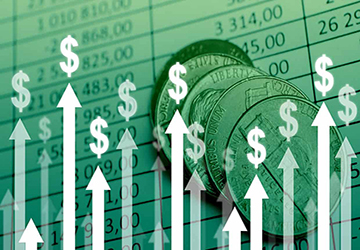The stock market has been vicious for the last couple of months. Wall Street hasn’t been this bad since the ’70s. In addition, inflation has gutted the first half of the year.
The Federal Reserve took up the responsibility of defusing the situation by hiking interest rates. However, the economy took a hit following the Covid pandemic, and the stock market fell behind the curve, which is dangerous. In addition, the Russian attack on Ukraine added salt to the injury.
Everything seems to be collapsing from areas of the commodities market, cryptocurrency, copper, and cotton, not forgetting an S&P 500 dropping to almost 20%. Despite the Fed trying to ease inflation, the financial constraints are still palpable. According to recent data, inflation is at 6.3%, excluding food and energy.
In the words of Charles Bobrinskoy, the vice-chairman of Ariel Investments, “When interest rates go up, it changes the math.” Investors are unsure what to invest in following the high risk of collapse. The bitter roots of inflation have changed the cost of buying a car, buying bonds, the value of Bitcoin, price of real estate and tech stocks.

High-interest rates trigger a higher borrowing cost. As a result, investors protect their money by pulling out of risky investments. This explains why high companies and Tech stocks were the first to fall.
If the Federal Reserve keeps increasing the interest rates, the situation could overturn and lead to a recess. Although policymakers and politicians are calling for immediate change, it is clear the moves of the Fed require time. The Fed may succeed and have inflation under control, but if the situation gets out of hand, all bets are off the table.
So What Will Calm the Storm?

Every dark cloud has a silver lining. Based on history, there is hope the stock market might recover over the remaining part of the year if the Fed eases up a little and gives the stock market a pause or an interest rate increase of 50 or 25 basis points, depending on the situation.
Some areas have worked in the crisis, like oil, agricultural products, and natural gas. The losses, however, outweigh the gains.
In 1970 the S&P 500 was at 21% in the first half of the year, and the losses reversed into 26.5% gains in the second half. A lot will need to line up for the stock market to recover. However, it is possible. Despite the cries, some are enjoying wins. The Russian invasion of Ukraine led to a decrease in the natural gas and oil supply. The commodities gained demand which led to a rise in prices. Countries and firms involved in petroleum have recorded about 40 % returns as prices have doubled.
As an investor, the best move is to stay on course. Work with the current stock market and make long-term plans. Keep in mind investments outpace inflation eventually. Hence the intelligent thing to do is to keep investing.





